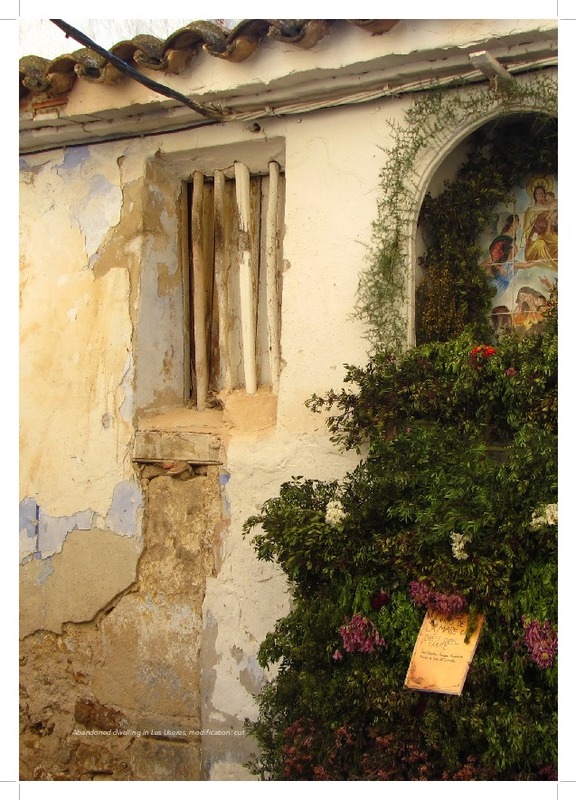JavaScript is disabled for your browser. Some features of this site may not work without it.
Buscar en RiuNet
Listar
Mi cuenta
Estadísticas
Ayuda RiuNet
Admin. UPV
Re-thinking the validity of the past. Deconstructing what authenticity and integrity mean to the fruition of cultural heritage
Mostrar el registro sencillo del ítem
Ficheros en el ítem
| dc.contributor.author | García-Esparza, Juan Antonio
|
es_ES |
| dc.date.accessioned | 2016-09-13T07:37:56Z | |
| dc.date.available | 2016-09-13T07:37:56Z | |
| dc.date.issued | 2016-06-21 | |
| dc.identifier.uri | http://hdl.handle.net/10251/69319 | |
| dc.description.abstract | [EN] There is a lively ongoing debate on Critical Heritage Studies and the Authorised Heritage Discourse, but quite a few authors have viewed the issue from a canonical perspective where the wider Cultural Built Heritage visual experience is assessed and valued in relation with authenticity and integrity. The terms static authenticity and dynamic authenticity appear in this text as dependent on heritage connectivity. Two main arguments are developed in this study. Firstly, a general overview of the context is proposed in order to understand the vernacular internationally. Secondly, the article offers an inside view intended to provide an accurate interpretation of how the vernacular is scrutinised and understood. A fundamental issue discussed in this paper is how cultural heritage is ruled, protected, enhanced, experienced and managed on different scales. | es_ES |
| dc.description.sponsorship | This research has been developed thanks to the funds of the project “World Heritage Cultural Landscapes List. Keys fortheiridentification and criteria for their management” from the Ministry of Economy and Competitiveness in Spain, MINECO. CSO2015.65787-C6-6-P | |
| dc.language | Inglés | es_ES |
| dc.publisher | Universitat Politècnica de València | |
| dc.relation.ispartof | VITRUVIO - International Journal of Architectural Technology and Sustainability | |
| dc.rights | Reconocimiento - No comercial (by-nc) | es_ES |
| dc.subject | Critical heritage studies | es_ES |
| dc.subject | Static authenticity | es_ES |
| dc.subject | Dynamic authenticity | es_ES |
| dc.subject | Integrity | es_ES |
| dc.subject | Abandoned landscapes | es_ES |
| dc.title | Re-thinking the validity of the past. Deconstructing what authenticity and integrity mean to the fruition of cultural heritage | es_ES |
| dc.type | Artículo | es_ES |
| dc.date.updated | 2016-09-09T09:57:10Z | |
| dc.identifier.doi | 10.4995/vitruvio-ijats.2016.4595 | |
| dc.relation.projectID | info:eu-repo/grantAgreement/MINECO//CSO2015-65787-C6-6-P/ES/PAISAJES CULTURALES DE LA LISTA DEL PATRIMONIO MUNDIAL. CLAVES PARA LA IDENTIFICACION Y CRITERIOS PARA LA GESTION DE DEHESAS Y MONTADOS IBERICOS, Y OLIVARES MEDITERRANEOS/ | |
| dc.rights.accessRights | Abierto | es_ES |
| dc.description.bibliographicCitation | García-Esparza, JA. (2016). Re-thinking the validity of the past. Deconstructing what authenticity and integrity mean to the fruition of cultural heritage. VITRUVIO - International Journal of Architectural Technology and Sustainability. 1(1):21-34. https://doi.org/10.4995/vitruvio-ijats.2016.4595 | es_ES |
| dc.description.accrualMethod | SWORD | es_ES |
| dc.relation.publisherversion | https://doi.org/10.4995/vitruvio-ijats.2016.4595 | es_ES |
| dc.description.upvformatpinicio | 21 | es_ES |
| dc.description.upvformatpfin | 34 | es_ES |
| dc.type.version | info:eu-repo/semantics/publishedVersion | es_ES |
| dc.description.volume | 1 | |
| dc.description.issue | 1 | |
| dc.identifier.eissn | 2444-9091 | |
| dc.contributor.funder | Ministerio de Economía y Competitividad |








